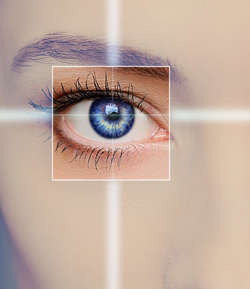
Despite the relative safety of LASIK surgery, there is a small chance that a corneal flap complication will occur. By understanding these risks and their warning signs, patients can take the proper steps to resolving any post-surgical problems. If you plan on undergoing LASIK surgery at our Carlsbad office, keep the following points in mind.
Creation of the Corneal Flap
LASIK eye surgery primarily consists of the reshaping of corneal tissue – the thin, outer layer of tissue that light first passes through prior to reaching the iris. In order to reshape this tissue, however, a thin flap must first be created near the surface, which will be temporarily lifted to allow the ultraviolet laser access to underlying tissue. This corneal flap is an integral step in the LASIK process, and while it typically heals with little to no issue, it is possible for complications to arise in the flap during the recovery process.
Corneal Flap Complications
Flap complications only arise in roughly one percent of LASIK procedures, and they rarely interfere with the procedure’s results or the patient’s long-term quality of vision. Nevertheless, it is important to understand the potential problems that may arise from flap surgery. Such problems include:
- Free cap: Normally, the flap comprises an incision that extends partially through the cornea. If the incision extends too far or the flap separates from the rest of the cornea, it will produce a free cap that is completely excised from the eye. In such an instance, the flap will have to be reattached, such as with small sutures.
- Incomplete cap: If a flap is too thin or not large enough, it will not allow for the adequate reshaping of tissue. As a result, a new flap will have to be created. This means the patient must wait several months for the first, inadequate flap to heal.
- Excess tissue growth: It is possible for new epithelial cells to grow between the flap and other corneal tissue during healing. Although the purpose of these cells is to protect the body from toxins, infections, and other external dangers, the excess tissue will interfere with vision. Therefore, any such cells must be cleaned out before the flap can properly adhere to the eye.
- Infection: Among all surgical procedures, the chance of developing an infection from LASIK is exceedingly rare. Still, patients should take care to notice any signs of infection. In such an event, the doctor will prescribe oral or topical antibiotics, which are usually enough to combat infection on their own.
- Improper healing: If the corneal flap shifts or is disturbed during recovery, it may heal in an improper position. This typically appears as a wrinkle or fold within the corneal tissue, and will result in a disturbance of vision.
Tips to Avoid Complications
Like any surgical procedure, the best way to ensure your safety and satisfaction is to rely on a doctor with a wealth of experience. The more comfortable a doctor is with your LASIK surgery, the less risk you face of having a post-surgical complication. Moreover, the technology used in a procedure can often improve your chances of overall success. At our practice, we utilize bladeless LASIK for a cleaner corneal flap incision. By using the Victus and IntraLase lasers for flap surgery, we help our patients further minimize the chances of developing an infection from foreign bacteria.
After surgery, there are a few things you can do as well to limit your chances of a flap complication. First, be sure to follow any instructions for recovery given to you by your doctor. This will include wearing protective goggles or similar eye-wear for a given time, as well as refraining from rubbing or touching your eyes. You should also avoid using any makeup, lotion, or similar products near your eyes, as the particles may irritate your corneal tissue. For more information on how to care for your eyes after LASIK surgery, please contact our office.
Contact Us Today
Our laser surgery center is eager to help you achieve clear, permanent vision. Contact us today for more informationon how to have a successful surgery, or to schedule your initial consultation at our office.